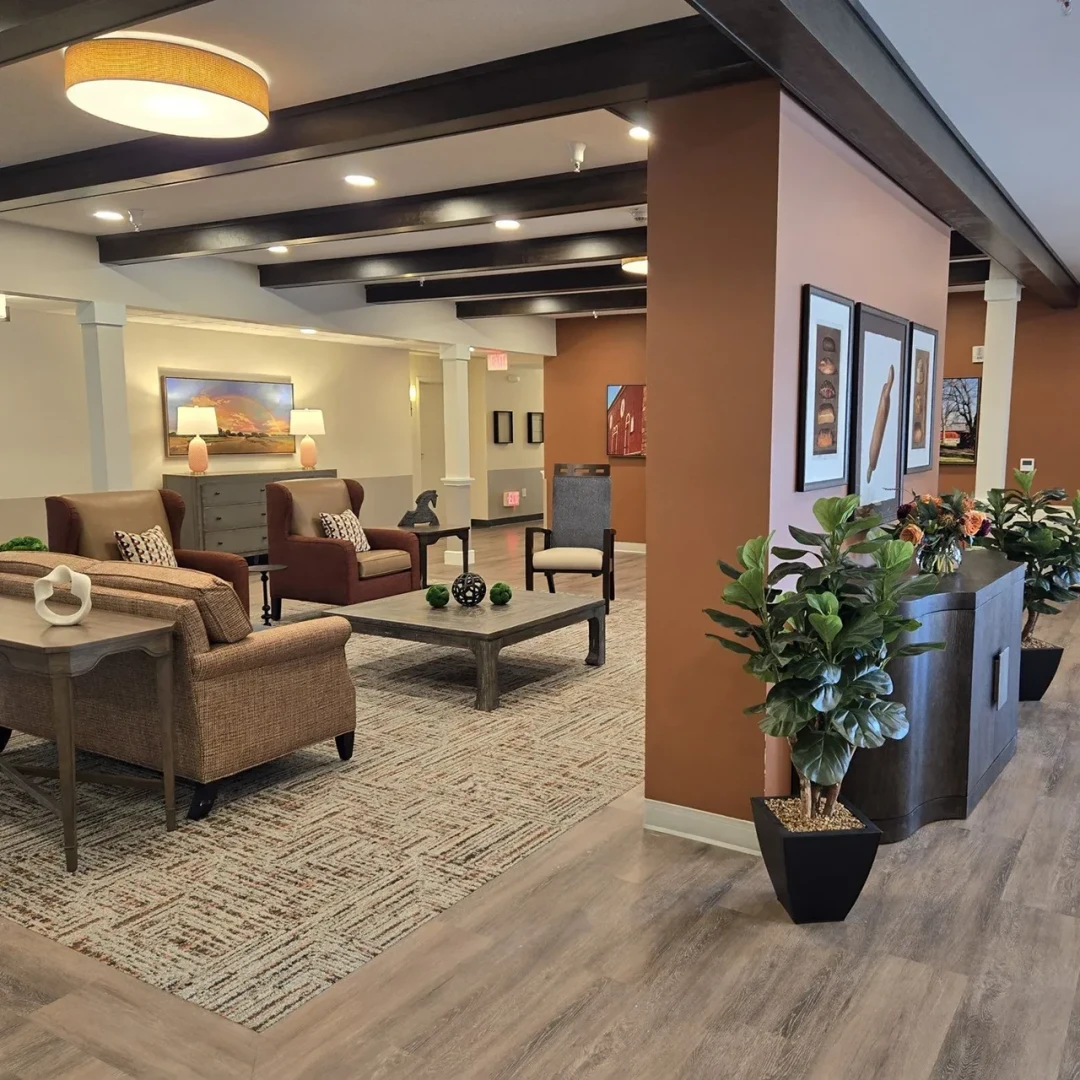Does My Parent Need Independent Living, Personal Care, or Memory Care?
Published on October 22, 2025
The drive back from Sinking Spring is quiet. You and your brother have been circling the same question for months: What kind of care does Mom really need now?
She's mostly fine—chatty, alert, still sharp about her crossword puzzles—but small things are starting to pile up. A forgotten meal. A misplaced checkbook. A phone call at midnight because she can't remember whether she took her evening pills.
It's hard to tell where independence ends and support begins. That's where families start weighing the three main types of senior living in Berks County: independent living, personal care, and memory care. Each offers a different balance of freedom, structure, and safety.
Independent Living — When Simplicity Is the Goal
At The Residence at Village Greens, we designed Independent living for older adults who can manage daily life on their own but want fewer responsibilities and more connections. Residents live in private living spaces, with meals, housekeeping, and maintenance handled by staff. The tradeoff isn't about giving up control; it's about choosing ease.
In a community like ours, independent senior apartments near Sinking Spring, PA, allow residents to live on their own terms—morning coffee in the courtyard, a short walk through Cacoosing Meadows, or an afternoon at a painting class—without worrying about the roof, the bills, or dinner plans.
According to AARP, these communities work best for people who are active and healthy but ready to let go of household chores and isolation. They offer company and convenience, not daily medical care.
Personal Care — When Hands-On Help Becomes Part of the Routine
In Pennsylvania, the term Personal Care Home (PCH) refers to a licensed residence that provides meals, supervision, and help with daily tasks like bathing, dressing, and medication management. These communities fill the gap between living fully independently and needing nursing-level support.
The Pennsylvania Department of Human Services describes personal care homes in Berks County as safe, community-based residences for people who don't require skilled medical care but need everyday assistance. Staff check medications, provide standby help in the shower, and encourage participation in group meals or activities.
A good rule of thumb: if your parent's safety or nutrition depends on you stopping by each day, personal care fits the situation better than independent living.
Memory Care — When Cognitive Changes Start to Shape the Day
Memory care communities near Reading, PA, serve older adults living with Alzheimer's disease or other forms of dementia. These settings are secure and structured, with staff trained to reduce anxiety and confusion. Lighting, signage, and daily routines are all designed to provide calm and predictability.
The Alzheimer's Association notes that familiarity is one of the strongest tools in dementia care. Good programs focus on small rituals—shared meals, music, gentle conversation—to help residents stay oriented and comfortable.
If your parent has started wandering, repeating questions, or misplacing dangerous items, a memory care environment offers both supervision and dignity. It allows safety to rise quietly around them while preserving as much autonomy as possible.
Understanding Coverage — Medicare and Medicaid
Many families are surprised to learn that Medicare does not cover long-term custodial care in independent, personal care, or memory care settings. It may pay for short-term skilled care following a hospital stay, but not for the ongoing support that most senior living provides.
You can verify this directly through Medicare.gov's Long-Term Care section.
Medicaid, on the other hand, may help cover long-term services for eligible individuals. In Pennsylvania, programs vary by county, and financial and medical assessments determine eligibility. Families in Berks County can start by contacting the Berks County Area Agency on Aging for help navigating applications and home- and community-based alternatives.
The Conversation That Matters Most
Before touring communities, take a close look at your parent's daily rhythm. Are they still managing their morning routine without help? Are meals balanced and on time? Do medications get taken consistently?
These questions matter more than labels. The best choice is the one that supports your parent's habits, protects their safety, and allows them to stay connected to others.
At The Residence at Village Greens, families can request a level-of-care consultation before making any commitment. The conversation often clarifies what's working, what isn't, and how to build a plan that feels sustainable—for both parent and family.
Where to Begin
You don't have to know the answer right away. Start by visiting senior living communities near Sinking Spring, PA, and speaking with their care teams. Ask for an honest assessment of your parent's needs. The right level of care offers peace of mind and a better rhythm for everyone involved.

We're excited to share more about our community.
Submit the form and we’ll get in touch shortly.
The Residence at Village Greens
4400 Haines St.
Sinking Spring, PA 19608
484-709-2561